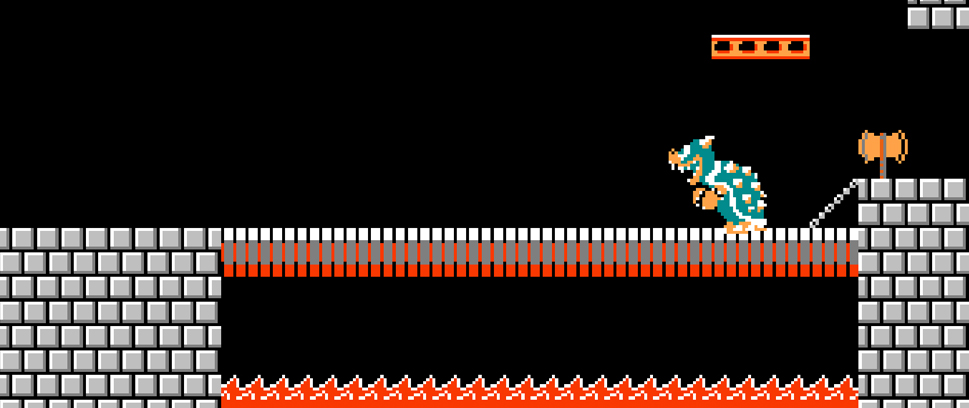
Paratext: An Infinity of Lists
“We like lists because we don’t want to die.” – Umberto Eco
With apologies to Umberto Eco….
2011 has been over for a few weeks now. All of the end-of-year lists are out and debated, digested and set aside or used to make our own “things I missed” lists. And so here I sit, a copy of Umberto Eco’s The Infinity of Lists open on my desk, musing.
I participated in three group lists this year: here at Unwinnable, at Paste and at Kill Screen. Ten games and assigned point values and some arithmetical magic to integrate my list with all the others.
It’s about not being able to forget, that forgetting is bad or wrong or impossible, so things have to be ranked in order to make sure we remember the “important” things. It’s the natural human tendency to filter information as cultural panic attack, responding to a huge amount of information with a consumer-choice notion of voting with your dollars or your time to make sure you get the “best.”
Some folks find it fun.
[pullquote]Why would it bother me that I have to place the numbers beside the games unless I thought five really was better than six?[/pullquote]
I have trouble ranking things in lists. I tell myself it’s because that’s not how I think; that I take things as they are, in and of themselves, and compare only to understand things better, not to rank them. But I don’t think that’s the case. I must invest those numbers with some kind of authority and meaning, intensely so. Why would it bother me that I have to place the numbers beside the games unless I thought five really was better than six?
There’s a danger in enumeration, of the presence of those digits, making everything look like it’s somehow objective. You had to draw lines, boundaries, and say, “these objects are independent but held together by this list.” The list breaks things into discrete units, which works well with words and code and databases. In the right light, we might think that discreteness translates to objective, comparable criteria. But we made those breaks ourselves. So maybe we swing to the opposite extreme: Instead of looking at the discrete objects, look at who defined them and put them there. Pure subjectivity – maybe a list’s structure and contents can tell us something about the people who made them.
That’s what our Facebooks and OKCupids and blog sidebars that show what we like to read and watch and play and listen operate on, isn’t it? And isn’t that weird and kind of problematic? I mean, I could list a bunch of books on mapping and that would tell you I liked those books and you’d maybe infer that I liked cartography, but the reality is messier than that. For one thing, it doesn’t tell you why.
As we move into 2012 with more information about the Wii U coming and rumors about new Microsoft and Sony consoles buzzing around our heads, we’ll see more of these lists. It’s not about the games (which we don’t have yet) or the actual physical object. It never really is – 360 vs PS3 isn’t a matter of, like, their weights. You don’t hit someone with your actual physical PS3 to prove it’s better than the 360. You turn it into a list of specifications and you say, “see, here is a list of points. Please respond to each of these points in a good, rational argument.” My three processors are better than your two processors…why, exactly? Well, three is greater than two and “greater” also means “better” so that’s a pretty easy linguistic jump to make. But I guess you could say three processors means more potential, because it can do more things at once? A list of potentials creates daydreaming; a list of constraints, though, and working within them – that’s where there’s creativity.
 That lists are all around games isn’t that much of a surprise; they’re all through them, too. Objectives, quest logs, journal entries, inventories, dialogue options. The list embodies choices: You can pick an option or you can ignore it.
That lists are all around games isn’t that much of a surprise; they’re all through them, too. Objectives, quest logs, journal entries, inventories, dialogue options. The list embodies choices: You can pick an option or you can ignore it.
And you’ve got a backlog of games, right? A list of games to choose from that you know you should play (Why? To experience them? To avoid buyer’s remorse?). But what does that list mean when you look at it? Games (and books and movies and, well, maybe not records because you always listen to records) that you thought were important to own or to play, but that importance must have come from somewhere else, because to come from your own experience you’d have to have played it and then it wouldn’t be in your backlog.
My game collection is its own list; there is no document that has all the names. It’s not alphabetized or organized in any real way, except the games I’ve played more recently are stacked in front of the games I haven’t. This list’s structure is shaped by the constraint of an apartment without a lot of shelving.
The heading of a list is a powerful thing, because it gives context to the contents of that list. Let’s say you make a list of Action Games. If you start with that heading, then putting things on that list becomes a matter of defining “Action Games.” But is there some kind of, I dunno, Platonic “Action Game” out there that lists (aha! again!) the criteria for an action game? Or is “Action Games” defined by what you put on that list? Are there two lists or one? Could we disempower the heading and say it doesn’t prescribe what it heads up, but is rather described by those things below it?
It’s tempting to see the list as primitive; an immature approach when compared to the holistic view (“list” does, after all, only need to grow a few letters to become “holistic”). “Going down the checklist” is a criticism for a lack of originality. And this column, my first for Unwinnable, is clearly a list.
Take that as you will.
———
Follow Brian Taylor as he lists out more about himself than you ever thought possible, 140 characters at a time, @BrianMTaylor.





